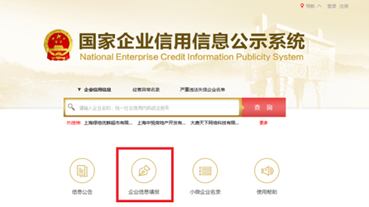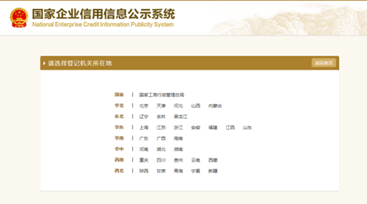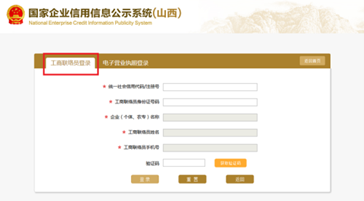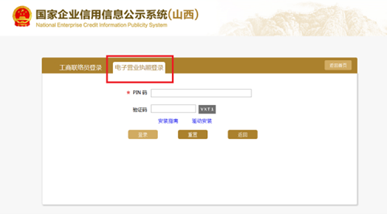China’s National Development and Reform Commission has outlined several measures to introduce reforms regarding the treatment of private enterprises. According to the guideline released in October 2020, these supporting policies may help to ease the burden on private enterprises, especially during the COVID-19 pandemic.
Read our previous article on Support for FIEs in China during the COVID-19 Outbreak
Private enterprises may include foreign-invested enterprises (FIEs) in China. With the new reforms, private enterprises may witness equal treatment from that of state-owned enterprises.
Reduction of the production and operation cost of private enterprises
China commits to simplifying the application procedures for preferential policies including tax and social insurance premium cuts or exemption as well as deferment of tax payments for small and medium-sized enterprises. On the other hand, small and micro enterprises can continue to enjoy a full refund support policy until December 31, 2021, since the beginning of 2020.
China also pledges to implement supporting policies to reduce electricity costs for private enterprises. Moreover, it will standardize the operating service charge and establish a land guarantee mechanism for logistics infrastructure.
Streamlining the licensing and qualification system
Private enterprises with multiple locations will benefit from ‘one business license’ where they are no longer required to register in a certain place. The registration bureau will also simplify procedures for opening a branch office.
Have a look at our article on How to Open a Branch Office in China
On the other hand, authorities will optimize the management of qualifications, certifications, and accreditation for private enterprises. In particular, the construction and new energy vehicle industry can take advantage of reduced qualifications or conditions to obtain certification or accreditation.
Sufficient financial or credit support for private enterprises
There are several measures focusing on solving financial problems for private enterprises. These include:
- Increasing credit support, especially medium and long-term loans for manufacturing industries;
- Increasing credit loans for small and micro-businesses by the intensified promotion of “XinYiDai” and “Bank-Tax Interaction”;
- Expanding the scope of loan mortgage pledges, especially for intellectual property pledges;
- Expanding direct financing channels for the private economy;
- Setting up a credit risk-sharing mechanism; and
- Promoting timely payment to SMEs.
Read more: SMEs to Secure On-time Payments from Purchasers
Guaranteed supply of resources for private enterprises
SMEs will be able to participate in the bidding, auction, and listing of industrial land. Meanwhile, private enterprises are encouraged to use their own land freely to develop new industries and conduct R&D innovation.
Private businesses will not pay additional fees on land prices if they plan to increase the plot ratio based on relevant regulations.
Furthermore, the government will also increase the proportion of private enterprises enjoying special government subsidies as well as speed up the implementation of upgrading the professional skill system for enterprises’ talents.
Expansion of investments and improvement of the industrial chain level
The reforms intended for private enterprises also include support for traditional industries such as the development of the petrochemical and agricultural industry in terms of machinery and equipment.
Moreover, due to the COVID-19 pandemic, the government encourages private enterprises to enhance the provision of emergency supplies and equipment. Thus, they can expect to enjoy reasonable incentive policies.
The government will also provide targeted assistance to private enterprises that are having trouble in the industrial chain. It will also increase its support with regards to the use of industrial parks in promoting innovation and transformation.
Simplified deregistration for business enterprises
The State Administration for Industry and Commerce (currently State Administration for Market Regulation or SAMR) also implemented reforms on the procedures for the deregistration of enterprises in 2017. It applies to the following types of registered companies:
- Limited liability company (LLC);
- Non-corporate legal person;
- Sole proprietorship; or
- Partnership enterprise.
However, the simplified deregistration procedure will not apply to the above enterprises if they fall under the following circumstances:
- Involved in the implementation of special access management measures as stipulated in the Negative List of industries;
- Included in the list of enterprises with abnormal business operations or serious violations;
- With equity (investment rights and interests) that is frozen, pledged, or mortgaged on movable properties;
- Under investigation or administrative compulsion, judicial assistance, administrative penalty, etc.;
- Non-legal person branches of the company that have not been deregistered;
- With an administrative order to terminate the simplified deregistration procedure;
- Requiring approval before deregistration according to laws, administrative regulations of the State Council.
How to deregister online
1. Go to the official website of the “National Enterprise Credit Information Publicity System” (http:// www.gsxt.gov.cn/) and click “enterprise information form”.

2. Select the location of the local registration authority.

3. If the company is established in accordance with the general deregistration procedures, select “business liaison officer” to log in.

If the company has obtained its license through the electronic process, select “electronic business license” to log in.

4. After logging in, upload the “Commitment Letter of All Investors” and make a public announcement.
5. The SAMR will review the application and if there is no objection within 30 days, the enterprise can then bring the following documents to the local SAMR:
- Commitment letter of all investors;
- Application letter for deregistration;
- Power of attorney to the agent (downloadable from the SAMR website);
- Original and duplicate business licenses.
6. The approval will take three working days and the enterprise will be officially deregistered.
Note that the authorities may require more documents during the general closing of the business license. Moreover, enterprises need to keep in mind that tax closure procedures must be done before applying for the simplified deregistration. For more information regarding the processes and documents for Shanghai, you may refer here.
Conclusion
Except for the simplified deregistration procedure, the Chinese government has yet to fully implement the reforms underlined in the document as discussed earlier. Thus, foreign-invested enterprises must pay close attention to the developments and seek advice for clarifying such proposed measures.
Nevertheless, China has continued to acknowledge difficulties among foreign-invested enterprises through the promotion and implementation of business reforms.
Contact us
S.J. Grand’s tax and accountancy services provide advisory on China’s tax and business regulatory environment as well as assistance in matters regarding business closing or deregistration. Contact us to get you started.
If you are interested to learn about our latest Cloud-based company solution, contact us, or go to our Kwikdroid page to check the prices and packages we offer, no matter the size or type of company.







